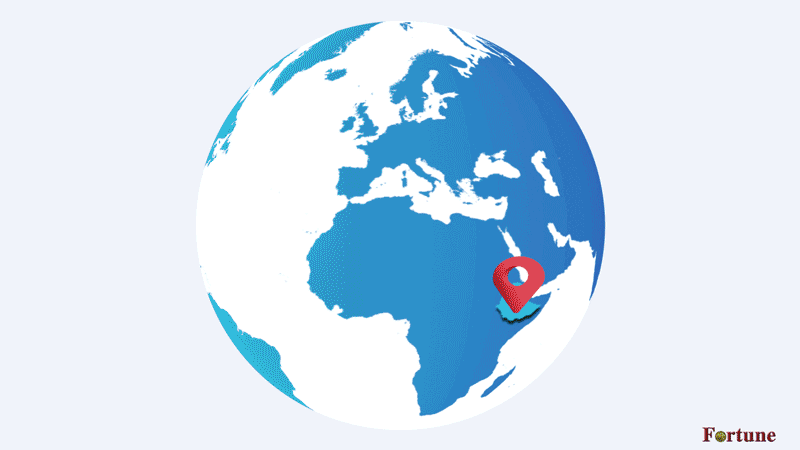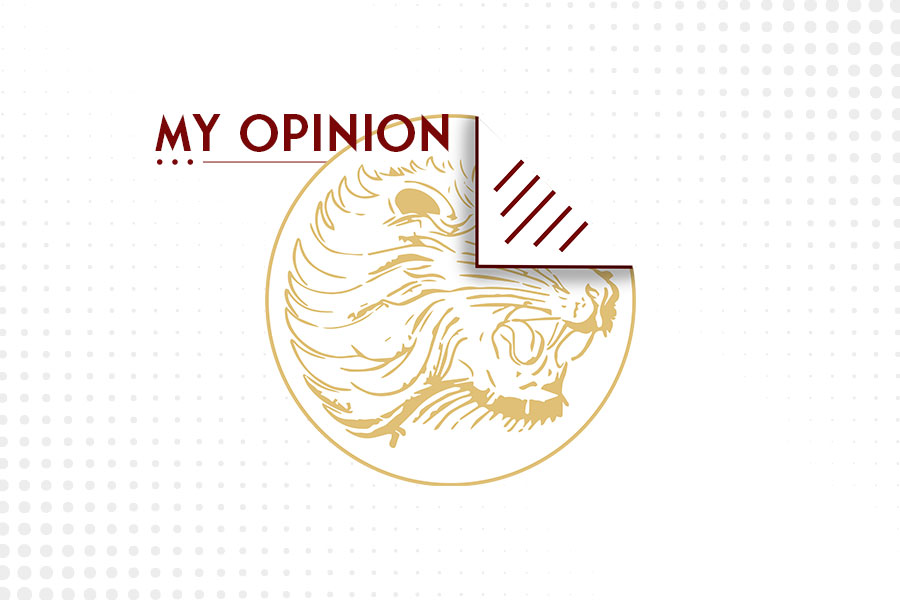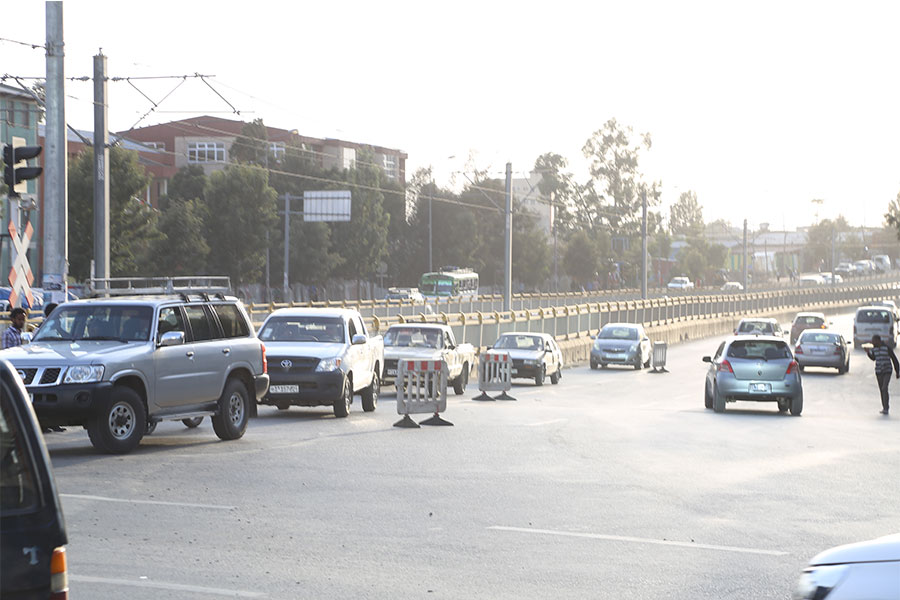
Radar | Feb 23,2019
Creating an institution for the ongoing negotiations between Ethiopia and Egypt has been posited as one solution going forward with the issues surrounding the Grand Ethiopian Renaissance Dam (GERD). This suggestion comes following the inflammatory comments made during a phone conversation between the President of the United States and Sudanese Prime Minister Abdalla Hamdok.
In the video making the rounds on social media since the evening of October 23, 2020, US President Donald Trump is heard stating that Egypt may blow up the Dam. The President is also heard urging Prime Minister Hamdok to intervene on behalf of Ethiopia, citing the recent aid cuts from the United States as a consequence of Ethiopia commencing with Dam filling.
Despite this, continued negotiations between Ethiopia and Egypt indicate the low likelihood of the situation escalating into war, according to Aaron Salzberg, Wilson Centre Global Fellow and director of the Water Institute at the University of North Carolina (UNC).
In a recent event at the UNC Centre for Middle East & Islamic Studies, the Director stated that the chances for the militarisation of the Nile are less likely than presumed by outside observers, as long as diplomatic discussions persist between the countries involved.
The institutionalisation of diplomacy between the two countries as a way forward was highlighted by the Director, who cited the example of the International Boundary & Water Commission, the formal body between the United States and Mexico on water diplomacy, as a means of dealing with evolving issues between two countries. This could also serve to improve regional coordination efforts so long as it maintains flexibility in rules and design to accommodate changing interests.
Institutionalising the process could additionally help resolve tensions between the two countries brought about by the hegemony of Egypt in the Nile basin, according to the Director. He also suggested that the two countries, with the role of an invisible mediator in the background, could resolve their issues amicably.
Ethiopia looks forward to commencing the negotiations, which have currently been paused, according to Dina Mufti, spokesperson for the Ministry of Foreign Affairs.
"We want the Nile River to be a source of cooperation and regional integration," said the spokesperson, who added that the country is open to any forums in the future. "But the equitable and rational use of the resource are two basic elements that require agreement before any other decisions."
The British-orchestrated 1959 Nile Waters Agreement, which Egypt still insists on referencing, allots the Nile water resources between Egypt, 55.5 billion cubic metres annually, and Sudan, 18.5 billion cubic metres, while completely disregarding Ethiopia. This treaty is regarded as colonial and exclusionary by Ethiopia.
"We aren't a signatory to that agreement," said Dina. "And Ethiopia is entitled to the use of resources considering that Abbay is the largest contributor to the Nile."
The spokesperson also indicated his support of the statement released by Prime Minister Abiy Ahmed (PhD) on the day following the release of the video.
"Occasional statements of belligerent threats to have Ethiopia succumb to unfair terms still abound," reads the statement by the Prime Minister.
It went on to say that the GERD has been an answer to a generation's quest for an equitable and reasonable utilisation of the Abbay and other rivers contributing to the Nile from Ethiopia.
"The Dam is equated with the sovereignty of the country," continues Dina. "It is being built by Ethiopian people with their energy, money and technology."
Negotiations between the two countries have thus far been unfruitful. The last attempt at an amicable solution was initiated through South African President Cyril Ramaphosa, who is also the current chairperson of the African Union.
"Africans can solve their own problems," said the spokesperson, "and we believe that the African Union is doing so in a humble and honest method from which we require only the role of a facilitator."
Dejen Yemane, a lecturer at Wollo University School of Law specialising in international law, believes that the three riparian countries have taken the wrong path over the negotiations of the Dam.
"There has never been any kind of bilateral or trilateral negotiations in the history of a unilateral project on a transboundary water," he said. "A basin-wide legal framework agreement might be looked at for a sustainable and equitable use of the water."
He referred to the 2010 Cooperative Framework Agreement (CFA), signed by five upstream countries, save Sudan and Egypt, as an ideal framework between the three countries.
"The terms of negotiation forwarded from the Egyptians are intolerable for Ethiopia, and it breaches the country's sovereignty and future rights on the water," he said. "GERD is currently being used as the hostage."
A firm stance by Ethiopia will give Egypt no options but to sign the CFA, according to Dejen. He also added that establishing a permanent institution is important in addressing the wants and needs of the riparian countries in the future.
PUBLISHED ON
Oct 24,2020 [ VOL
21 , NO
1069]

Radar | Feb 23,2019

View From Arada | Apr 17,2020

My Opinion | Apr 29,2023

Commentaries | Sep 11,2020

My Opinion | Mar 07,2020

Radar | Aug 01,2020

Radar | Aug 13,2022

Radar | Apr 24,2021

Featured | Mar 02,2019

Commentaries | Jun 27,2020

Dec 22 , 2024 . By TIZITA SHEWAFERAW
Charged with transforming colossal state-owned enterprises into modern and competitiv...

Aug 18 , 2024 . By AKSAH ITALO
Although predictable Yonas Zerihun's job in the ride-hailing service is not immune to...

Jul 28 , 2024 . By TIZITA SHEWAFERAW
Unhabitual, perhaps too many, Samuel Gebreyohannes, 38, used to occasionally enjoy a couple of beers at breakfast. However, he recently swit...

Jul 13 , 2024 . By AKSAH ITALO
Investors who rely on tractors, trucks, and field vehicles for commuting, transporting commodities, and f...

Jul 5 , 2025
Six years ago, Ethiopia was the darling of international liberal commentators. A year...

Jun 28 , 2025
Meseret Damtie, the assertive auditor general, has never been shy about naming names...

Jun 21 , 2025
A well-worn adage says, “Budget is not destiny, but it is direction.” Examining t...

Jun 14 , 2025
Yet again, the Horn of Africa is bracing for trouble. A region already frayed by wars...